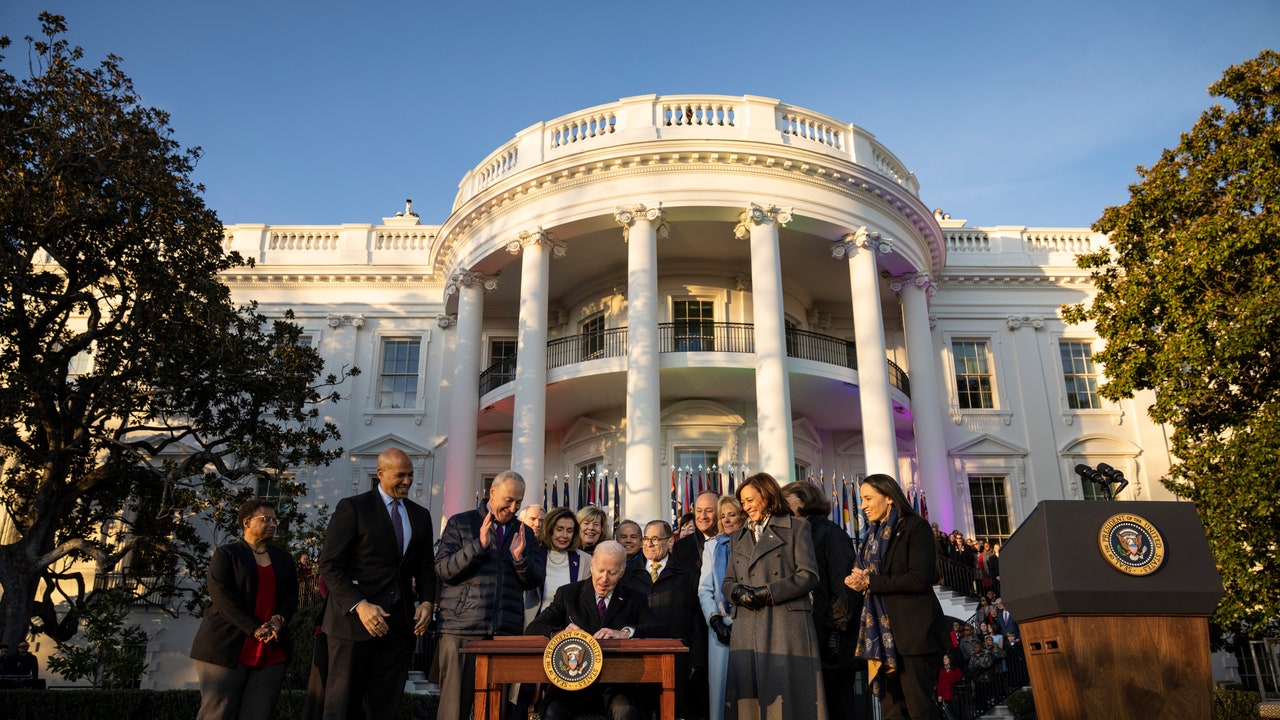This article was originally published by Fashion.
President Biden on Tuesday afternoon signed the historic Respect for Marriage Act, which provides broad federal protections for same-sex and interracial marriages. A grand signing ceremony was held on the South Lawn of the White House, followed by a celebration.
An increasingly rare bipartisan success story, the bill provides federal recognition for same-sex marriages and ensures they are recognized across state lines. The bill also guarantees that same-sex couples will receive the same federal benefits as opposite-sex couples, such as: B. Social Security and Veterans. It does not guarantee the right of same-sex couples to marry.
“Today, Congress took a critical step to ensure Americans have the right to marry the person they love,” Biden said said in a statement released on Tuesday morning. “The bipartisan passage of the Respect for Marriage Act by the House of Representatives – by a significant margin – will reassure millions of LGBTQI+ and multiracial couples who are now guaranteed the rights and protections to which they and their children are entitled.”
In the statement, Biden led the Supreme Court controversially Dobbs Decision repealing constitutional right to abortion, triggering efforts to uphold and codify civil protections for LGBTQ and multiracial couples. He said: “Following the uncertainty caused by the Supreme Court Dobbs Congress has restored some security to millions of marriages and families. They have also given hope and dignity to millions of young people across this country, who can grow up knowing that their government recognizes and respects the families they are building.”
Minister Pete Buttigieg, who identifies as LGBTQ+ and is in a same-sex marriage, praised the landmark passage. “Starting today, millions of American families will know that our marriages are protected — not just by a margin of one in the Supreme Court, but by American law,” he said wrote on Twitter this morning.
The Respect for Marriage Act will officially repeal the Defense of Marriage Act, which was passed in 1996 during the Clinton administration and banned federal same-sex marriages. Passing a large, veto-proof, Republican-controlled upper and lower chamber of Congress, then-former President Clinton voiced his disapproval of the bill, calling it “divisive and unnecessary,” but signed it into law anyway.
Many see the bipartisan passage of the Respect for Marriage Act as a reflection of growing public support for same-sex marriage on both sides. Sixty-one percent of Americans say legalizing same-sex marriage is good for society according to a poll by Pew Research carried out in October. Thirty-nine Republicans in the House of Representatives and 12 Republican Senators voted for it the Law on Respect for Marriage.
The bill prohibits the federal government from denying marriage between two people “based on the sex, race, ethnicity, or national origin of those people.” This also provides great protection for interracial marriages, which became fully legal in the United States in 1967 Loves vs. Virginia. The majority opinions for Loving and upper skin Both focused on the 14th Amendment, which guarantees due process and equal protection for all.
Numerous LGBTQ+ advocates and organizations have praised the bill. But they have also encouraged Congress to provide even stricter federal mandates and protections for LGBTQ+ citizens. Many stress that the conservative-led Supreme Court can still overturn the 2015 milestone upper skin Case requiring states to issue marriages to all couples. In that case, states could still ban same-sex marriages individually. A couple in, say, Texas, which has laws prohibiting same-sex marriages, would have to travel to a state that recognizes and issues same-sex marriages in order to legally marry.
Jim Obergefell, the lead plaintiff in Obergefell v. Hodgescriticized the law respecting marriage on CNN. “No, I’m not celebrating,” Obergefell said. “I will say that I am glad that at least something has been done, something that we will have to fall back on should the Supreme Court topple over upper skin in the future, but this law I find strange that it is called the Respect for Marriage Act because this law does not respect the LGBTQ+ community, our marriages, our relationships or our families.”
